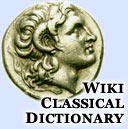
Battle of the Biographies
What to read | Green, Alexander of Macedon | Fox, Alexander the Great | Bosworth, Conquest and Empire | Hammond, The Genius of Alexander the Great | The little books | Others
What to read
I'm still looking for good layman's guide to the books out there. Until then I'll just say that I think that the best long introductions are Green and Fox. Stoneman is best short introduction.
"Alexander on the Printed Page" from Alexander on Archaeology (magazine) gateway. "Must read" list suggested Eugene Borza. Includes Fuller and Cartledge in the top five Alexander books. (Fox is unmentioned.) One could quibble with the Macedonia list.[1]
"Top 7 Modern Biographies of Alexander the Great" by N.S. Gill, About.com's ancient history guru.
Green, Alexander of Macedon
 Amazon.
Alexander of Macedon 356-323 B. C. : A Historical Biography by Peter Green. The Amazon reviews are almost all raves (e.g. "What a fantastic book! Peter Green makes the history of Alexander the Great sing!") Personally, this is my favorite as well. Green has wonderful flair, and, although I quibble somewhat with his method, his account has real authority. See the
UC California press blurb.
Amazon.
Alexander of Macedon 356-323 B. C. : A Historical Biography by Peter Green. The Amazon reviews are almost all raves (e.g. "What a fantastic book! Peter Green makes the history of Alexander the Great sing!") Personally, this is my favorite as well. Green has wonderful flair, and, although I quibble somewhat with his method, his account has real authority. See the
UC California press blurb.
![]()
"Revisionism: The Historiographical Method of Peter Green" by Ed Tucker. Student essay from David's Ancient World.
Positive review by Father Dan Merz, a teacher and priest in Jefferson City, MS. Short, not religiously-fixated review.
Fox, Alexander the Great
 Amazon.
Alexander the Great by Robin Lane Fox. Well-written, well-regarded Alexander biography that caught Oliver Stone's eye, and led to Fox becoming the movie's primary consultant.
Amazon.
Alexander the Great by Robin Lane Fox. Well-written, well-regarded Alexander biography that caught Oliver Stone's eye, and led to Fox becoming the movie's primary consultant.
Bosworth, Conquest and Empire
 Amazon.
Conquest and Empire : The Reign of Alexander the Great by A. B. Bosworth.
Cambridge University Press blurb.
Amazon.
Conquest and Empire : The Reign of Alexander the Great by A. B. Bosworth.
Cambridge University Press blurb.
"A detailed running narrative of the actual campaigns from the Danube to the Indus is complemented and enlarged upon by thematic studies on the reaction in Greece to Macedonian suzerainty, the administration of the empire, the evolution of the Macedonian army and its role as the instrument of conquest, and on the origins of the ruler cult."
Lengthy Amazon review by Thom Stark. (scroll beneath review of Alexander the Great: Historical Texts in Translation). Stark does not exercise a scholar's customary respect and restraint, calling it:
"… an abyssal sump of academic dishonesty and deep and fundamental scholarly hypocrisy."Stark hits Bosworth's failure to use J.F.C. Fuller's popular and unscholarly "The Generalship of Alexander the Great." Although other scholars have found flashes of insight in Fuller's account, Fuller was not a trained scholar, didn't read Greek or Latin. At least as military action goes, Fuller explicitly denies the value of source criticism, in place of which he offers his 20th century military experience and his own ipse dixit. Few Classical scholars would go along with this attitude. It is hardly, as Thom states, an "act of supreme hubris."
Hammond, The Genius of Alexander the Great
 Amazon. The Genius of Alexander the Great by N. G. L. Hammond. Also in
hardcover. Hammond's book is a modern defense of Alexander's character and greatness, against Green and other "detractors."
Amazon. The Genius of Alexander the Great by N. G. L. Hammond. Also in
hardcover. Hammond's book is a modern defense of Alexander's character and greatness, against Green and other "detractors."
Excerpt: The First Chapter from the University of North Carolina UP.
Excerpt: Alexander's Genius (four pages), from Houghton Mifflin's Mosaic.
Review by Janet Burnett Grossman, Bryn Mawr Classical Review 97.11. If you didn't know the thrust of modern scholarship, this might seem a fairly level review. But there's a lot of sarcasm here, and the summaries are really lists of flaws:
"He was religious and pious. In Hammond's view a measure of Alexander's religiosity is demonstrated by the fact that he had made no arrangements for the transference of power at the time of his death because he believed that through prayer and sacrifice he would live. Alexander was brilliant, bold, intuitive. He had strong emotions, loved his mother, and was loyal to his friends (the killing of Clitus simply a human slip-up). He was truthful and led by persuasion not tyranny. He was visionary. In short, Alexander was a genius."
Powels.com has some review excerpts.
The little books
 Amazon. Richard Stoneman,
Alexander the Great. From the ranking it looks like Amazon hasn't sold a single copy. That's a shame, as I very much enjoyed Stoneman's brief introduction to Alexander studies--it is something less than a biography, at least not one of the fat ones we've come to expect. Stoneman handles brevity well, and I was surprised how much he has managed to fit into 98 pages without ever seeming rushed. I think it would be particularly suitable for two types of readers: (1) Students in undergraduate courses on Greek history who need something rigorous but can't be expected to make it through Green or Fox. (2) Readers who've already read one of the more "novelistic" biographies and want something that recapitulates the basics and outlines the controversies in a fair-minded and scholarly fashion.
Amazon. Richard Stoneman,
Alexander the Great. From the ranking it looks like Amazon hasn't sold a single copy. That's a shame, as I very much enjoyed Stoneman's brief introduction to Alexander studies--it is something less than a biography, at least not one of the fat ones we've come to expect. Stoneman handles brevity well, and I was surprised how much he has managed to fit into 98 pages without ever seeming rushed. I think it would be particularly suitable for two types of readers: (1) Students in undergraduate courses on Greek history who need something rigorous but can't be expected to make it through Green or Fox. (2) Readers who've already read one of the more "novelistic" biographies and want something that recapitulates the basics and outlines the controversies in a fair-minded and scholarly fashion.
![]()
 Amazon. Alexander the Great by E. E. Rice. This book is in "Get a Life" biography series, which means that the Amazon heading is "Alexander the Great (Get a Life)" which, at first, I thought might be a personal attack on me and my site. I haven't seen it in bookstores and no reviews have appeared on the web, but by its size (128 pages) it looks like a competitor with Richard Stoneman's
Alexander, lauded above.
Amazon. Alexander the Great by E. E. Rice. This book is in "Get a Life" biography series, which means that the Amazon heading is "Alexander the Great (Get a Life)" which, at first, I thought might be a personal attack on me and my site. I haven't seen it in bookstores and no reviews have appeared on the web, but by its size (128 pages) it looks like a competitor with Richard Stoneman's
Alexander, lauded above.
 Amazon. Alexander the Great: Man of Action, Man of Spirit by Pierre Briant. This is one of those tiny entertaining "Discoveries" books, full of art and quotations. Nick Wellman (Pothos.org) says on Amazon:
Amazon. Alexander the Great: Man of Action, Man of Spirit by Pierre Briant. This is one of those tiny entertaining "Discoveries" books, full of art and quotations. Nick Wellman (Pothos.org) says on Amazon:
"For a brief overview of Alexander's life, this is one of the most enjoyable books one could buy. Briant quotes various authors; the reader is encouraged to draw his/her own conclusions. And the huge bonus is the pictures. It is probably the most colourful, best illustrated little book on Alexander that's around."
Others
Amazon. Alexander the Great by Ulrich Wilcken, with a useful preface by Borza. This is something of a classic, but perhaps not the first book to read.
Amazon. Alexander the Great by Lewis V. Cummings (1940). I'm not sure why this book is out again, except perhaps to capitalize on consumer ignorance in the lead-up to the movie release—it looks new, and even uses a popular cover image. Cummings, who's dead, is surely not to blame, and for all I kow this is a fine popular introduction. But 1940 was a long time ago and I've never seen it mentioned in any scholarly bibliography.
Amazon. Alexander the Great: The Perversion of Power by Ian Worthington, 1973 biography reissued. The paperback is apparently titled "Man and God." I'm betting Borders balked at the word "perversion."
Notes:
- Two of the three Macedonia books are by Borza. This is probably correct—Borza is a giant—but who likes it when professors put their own books on the reading list? Anyway, both Borza books are about earlier Macedonia. In my experience, people interested in Alexander are at least as interested in what came after as in what came before. For that, I'd throw in Errington's A History of Macedonia to give an overview from the earliest times to the Antigonids. (back)


Wiki Classical Dictionary, currently focused on Alexander
All material © 2000–2005 Tim Spalding.
Presented in Association with Amazon
If you enjoy this site you may also like these other sites by me:
Genghis Khan on the Web More than 275 links about the Mongol conqueror.
Cleopatra on the Web Over 410 resources on Cleopatra. Includes 168 images.
Ancient Library and the Wiki Classical Dictionray, major new reference sources for ancient studies.
Hieroglyphs! Over 125 links about Egyptian hieroglyphs for all ages and levels of knowledge.